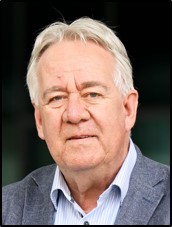Abstract
The electronics industry is a cornerstone of modern society, influencing nearly every aspect of our lives. Its impact spans from economic growth and technological advancement to healthcare, education, entertainment, and national security, making it an essential driver of progress and development. Furthermore, it transforms transportation and mobility and fuels ongoing research and development, addressing societal challenges and creating new opportunities for innovation and improvement.
Mathematics is pivotal in the electronics industry. It guides the design and modelling of electronic circuits and systems, allowing precise predictions of behaviour. Mathematical techniques are vital for signal processing, enabling the manipulation of various types of signals. Control theory employs mathematics to regulate and maintain electronic systems. Digital logic relies on Boolean algebra for designing digital electronics.
Mathematics is also used for circuit analysis, allowing engineers to understand the flow of current, voltage, and power through components. Probability and statistics play a role in quality control and reliability analysis. Numerical methods ensure accuracy in electronic system design and analysis. Coding and algorithms are essential for developing electronic software. Machine learning and AI utilize advanced math for model training and predictions. Cryptography, rooted in mathematical concepts, secures electronic communication. In essence, mathematics underpins the entire electronics industry, facilitating innovation, reliability, and functionality of electronic devices. Vice versa, the electronics industry has also been important for new developments in mathematics, it has been the most important driving force in the area of model order reduction.
In this talk, we will show that mathematics is the backbone of the electronics industry, providing the tools and methodologies necessary for designing, analysing, and optimising electronic components and systems. It enables engineers and scientists to create innovative solutions, enhance performance, and ensure the reliability and functionality of electronic devices that have become an integral part of modern life.
About the speaker
Wil Schilders obtained his MSc in mathematics, physics and astronomy from the Radboud University in Nijmegen (NL) in 1978, and his PhD in numerical mathematics from Trinity College Dublin, Ireland, in 1980. From 1980-2006 he worked in the Mathematical Software Group and the Applied Mathematics Group at the Philips Research Laboratories in Eindhoven (NL), and from 2006-2010 was the head of the Mathematics Group at NXP Semiconductors.

His work at Philips and NXP Semiconductors was mainly concerned with the development of robust and efficient numerical methods for the simulation of semiconductor devices, electronic circuits and electromagnetics problems. In 1999, he became a full professor (part-time) of scientific computing for industry at Eindhoven University of Technology. Since 2010, he is both a professor at TU Eindhoven and the executive director of the Dutch Platform for Mathematics. He is active in organising workshops and international conferences (e.g. SCEE 2002, Preconditioning 2015, SCEE 2020, SCEE 2022, SIAM CSE 2023), also initiated and chaired the Europeannetwork on Model Order Reduction (EU-MORNET, 2014-2018) with over 300 researchers. He has been president of the European Consortium of Mathematics for Industry (ECMI, 2010-2011) and the European Service Organisation of Mathematics for Industry and Innovation (EU-MATHS-IN, 2016-2020). In 2019, he was elected officer-at-large in the board of the International Council for Industrial and Applied Mathematics (ICIAM), and currently is its president till September 2027. Wil was the 4th Mittelsten-Scheid guest professor at the Bergische Universitaet Wuppertal in 2020-2021, and is a Hans Fischer senior fellow at TU Munich. In 2022, he was elected SIAM fellow and also received the Stairway to Impact award of the Dutch research funding organization NWO.

